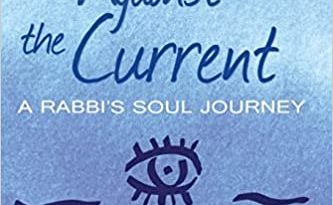Review of “Judaism is About Love,” by Rabbi Shai Held
Christians have managed to convince much of the world that Judaism is all about rigid adherence to law – which no one can live up to – and strict judgment. Then along came Christianity with a merciful loving God for everyone. “Old Testament” = stern; New Testament = loving.
In his brilliant new magnum opus, Rabbi Shai Held makes the bold claim that Judaism is really all about love. And he backs it up with solid textual support from the Hebrew Bible, the Talmud, midrash, and later commentators. And he also cites the New Testament to show that Christianity isn’t really so loving to people who are not believers.
Jews have always known that our God is not really so strict. Every year on the High Holidays we go through the personal accounting of taking stock of our deeds over the past year, but at the end of the day, we rely on God’s mercy, and we come out of Yom Kippur with a fresh start for the new year.
As R. Held sees it, the Torah has issued us three dramatic love commands, and the rabbis added two more:
- The Torah charges us to love our neighbor – meaning our fellow Jews.
- We are commanded to love the stranger – someone who lives among us who is not Jewish. This commandment, of course, is especially relevant for the only people who live in a majority Jewish country, Israel. This commandment is so important it’s repeated multiple times in the Torah.
- We are commanded to love God, a commandment that the observant Jew recites twice a day as part of one of our central prayers, the Shema.
- Later Jewish sources tell us that we are to love all human beings, because they are all created in the divine image, and are part of the same human family. We are all descended from Adam.
- The rabbis of the Talmud added that we are to walk in God’s ways – which means to respond with compassion when we see someone suffering.
R. Held points out that these commandments are understood as compelling both emotion and action. It’s not enough to feel love and ignore someone’s suffering. And it’s not enough to just do something, like write a check, without feeling love and compassion to go with it. We are charged to feel love and compassion, and to do something about it.
The book does an excellent job of showcasing the tension in Judaism between particularism and universalism. As the author points out,
Jewish ethics allows us—indeed, it requires us—to prioritize concern for those near and dear to us over concern for others who are more distant, whether relationally or geographically. But at the same time, Jewish ethics demands that we not stop there: family first is decidedly not—must not be allowed to devolve into—family only…The summons is clear, if also more than a little bit daunting: love for the near and the distant; love for one’s own people and love for humanity as a whole.
One of the sections I found most interesting was “Can Love be Commanded?” Here the author deals with the question of “emotional agency.” Can you really command someone to love their neighbor, the stranger, God? After all, we do not have direct control over our emotions. Wouldn’t life be a lot simpler if we did?
Throughout the book Held cites an imposing array of sources. It’s no surprise that the author, president and dean of the Hadar Institute, has a deep command of Jewish sources. He also shows deep learning in quoting a broad range of philosophers, theologians, and the scripture of other faiths. In the section on emotional agency, the author disagrees Immanuel Kant, who maintained “there can be no obligation to have feelings,” so therefore a duty to love is simply a requirement to act for the benefit of others, regardless of how you feel about them.
He points out we do hold each other responsible for feelings – and in some cases lack of feelings. He quotes Rabbi Louis Jacobs who pointed out that while we cannot turn emotions on like a tap, we can cultivate emotions so that they will flow naturally. He also quotes Nancy Sherman’s book “Taking Responsibility for our Emotions:” we can learn to feel compassion “through efforts at imaginative transport and empathy—efforts at conceiving of what it would be like to be them, standing in theirshoes, faceting their struggles, living their battles.” He doesn’t cite them here, but I would point out there are also stories in the rabbinic tradition that emphasize everyone is supposed to give charity, even poor people, because we are supposed to become accustomed being a giver, to feeling compassion. Things we do and think have an impact on how we feel, so indirectly, at least, we do have some control over feelings.
I believe different audiences can get different things out of this book. It will help foster better relations between Jews and Christians for Christians to learn that Judaism is just as much about God’s love and our love of our fellow humans as Christianity is. And in the wake of October 7, there are many Jews who need to be reminded that our commandments for love and compassion extend beyond just our Jewish circle. As I write this the war in Gaza is still raging, and R. Held’s words are a reminder that Jews cannot turn a blind eye to the suffering in Gaza.
There is much wisdom and food for thought to be found in the book. Highly recommended.




pgsqlx